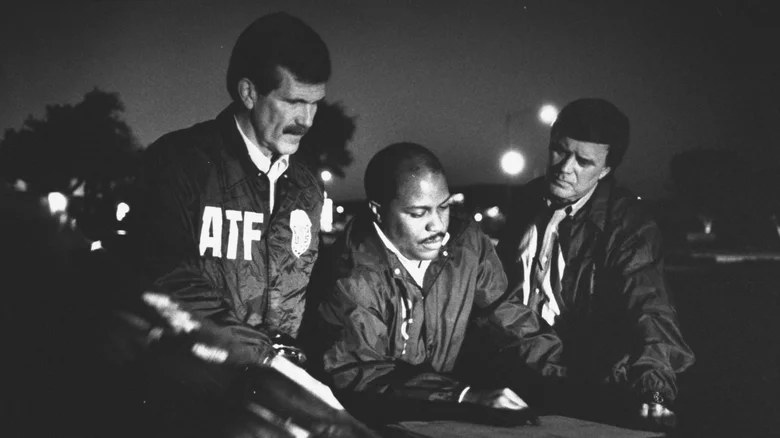Now Reading: The Overlooked Role of Victim Impact Statements in DUI Accident Trials
-
01
The Overlooked Role of Victim Impact Statements in DUI Accident Trials

The Overlooked Role of Victim Impact Statements in DUI Accident Trials
When a drunk driving accident ends up in court, facts and figures alone rarely capture the full weight of what has been lost. Judges and juries need more than numbers—they need to hear the human side of the story. That’s where victim impact statements come in, says a drunk driving accident lawyer in Durham. These personal accounts provide an honest look into the emotional, physical, and financial fallout of a DUI crash. When crafted thoughtfully, they can be powerful tools that influence sentencing and damages.
Why Victim Testimonies Resonate in Court
Statistics may tell us how many accidents occur each year, but they don’t explain how one crash shatters a family’s daily life. Victim impact statements give voice to those living through the aftermath. They allow victims or family members to share details of their life before and after the incident, including what has changed, what has been lost, and what struggles remain. This kind of testimony draws a clear, emotional picture for the court, one that often moves judges and juries to a deeper level of empathy.
For instance, instead of simply presenting medical bills, a victim might describe the frustration of no longer being able to work, the difficulty of performing basic tasks, or the emotional strain of adjusting to permanent injuries. Such descriptions shift the courtroom’s focus from abstract data to lived human experience.
Personalizing the Consequences of DUI
Numbers can’t express grief, nor can they show the ripple effects of trauma. A family member speaking about the sudden absence of a loved one brings the consequences of drunk driving into sharp relief. By personalizing the harm, these statements make the issue impossible to ignore. They remind everyone in the courtroom, especially the offender, that the actions leading to the crash have long-lasting, real-world consequences.
This is one of the reasons impact statements are so effective. They transform the courtroom from a sterile legal setting into a place where human suffering is recognized and acknowledged.
Influence on Sentencing and Compensation
Victim statements don’t just move hearts; they can also affect outcomes. Judges may impose harsher sentences after hearing how devastating the effects of a crash have been. Similarly, in civil cases, these statements help establish the extent of damages, strengthening arguments for fair compensation. The more vividly the harm is described, the easier it is for courts to understand why significant restitution is necessary. Compensation then becomes more than numbers; it becomes a means of helping victims rebuild their lives.
The Role of Attorneys in Shaping These Narratives
While victims speak from the heart, attorneys play a key role in guiding them through the process. An accident lawyer knows how to help victims tell their stories clearly and effectively. They ensure that statements strike a balance between emotion and credibility, weaving together facts and personal experiences in a way that leaves a lasting impact. Attorneys may encourage victims to highlight not only the emotional toll but also the daily financial and practical challenges that follow such accidents.
This guidance makes a big difference. Without structure, victims may feel overwhelmed or unsure of how much detail to include. With professional support, they can present statements that are compelling, respectful, and legally persuasive.
Beyond Legal Advice: Offering Emotional Support
Another vital role attorneys play is providing emotional reassurance. Revisiting a traumatic event can be painful, and many victims hesitate to put their feelings into words. Lawyers offer a steady presence, listening carefully and validating what victims are going through. This combination of empathy and legal expertise enables victims to feel both supported and empowered as they share their truth.
Making the Statement More Impactful
Delivery matters just as much as content. Attorneys often coach victims on how to present their statements in person, emphasizing the importance of clarity and authenticity. They may also suggest supporting materials such as photographs, journals, or medical reports to make the story even more compelling. These additional details ensure the court fully understands the depth of loss and suffering.
A seasoned drunk driving accident lawyer in Durham may also advise on tone and pacing, making sure victims’ words are delivered with sincerity and confidence. This preparation can make all the difference in how the court receives the statement.
Conclusion
Victim impact statements are far more than procedural steps in a DUI trial; they are opportunities to humanize the consequences of drunk driving. They give victims and families the chance to share their pain and resilience, reminding the court that every statistic represents a person whose life has been altered. With the right balance of honesty and detail, these statements can influence both sentencing and financial compensation, ensuring justice reflects the lived reality of victims. In this way, they serve as a vital tool in achieving not only fairness but also acknowledgment of the profound human cost of impaired driving.










